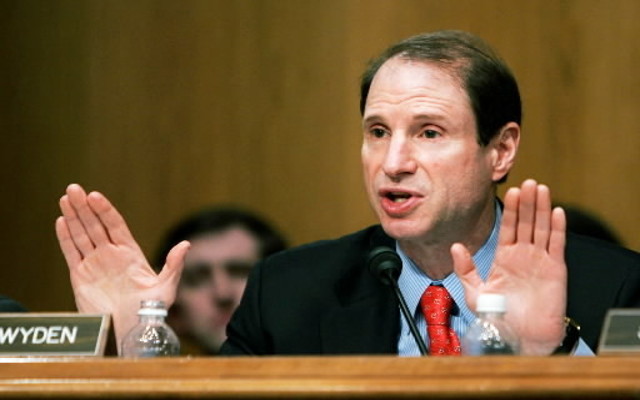On 28 February 2017, Senator Ron Wyden (D-OR) commemorated the six-year anniversary month of the 2011 pro-democracy movement in Bahrain by submitting a statement for the Congressional record. Americans for Democracy & Human Rights in Bahrain (ADHRB) welcomes the statement by Senator Wyden and thanks him for his continued work to promote human rights in Bahrain and the larger Gulf Cooperation Council region. The statement highlights the Bahraini government’s continued refusal to adopt democratic principles and the recent reversals on post-2011 reforms. Particularly, Senator Wyden highlights the recent dissolution of opposition political society Al-Wefaq, the imprisonment and judicial harassment of human rights defender Nabeel Rajab, and the restoration of arrest powers for the National Security Agency (NSA). Senator Wyden noted the legislation he introduced last Congress to restrict small arms sales to Bahrain and his commitment to resuming those efforts in the new Congress.
For a full text of the statement please see below, or linked here at the Congressional website.
Mr. President. 6 years ago this month, more than 100,000 Bahrainis of all ages and backgrounds joined together to protest their government. Although these men and women took to the streets peacefully, they were met with violence as the regime unleashed its state security forces. Using threats and intimidation, tear gas, live ammunition, and even torture, the regime brutally repressed the peaceful demonstrations. Following widespread international condemnation, the regime agreed to create an independent body to look into the crackdown and propose reforms–the Bahrain Independent Commission of Inquiry or BICI–and when the BICI came back with 26 recommendations, the KING promised to urgently implement them all.
Six years later, the regime has not upheld that commitment. When our own State Department last reported on each BICI recommendation, it could only identify a handful that had been fully implemented–a far cry from the regime’s claim of full implementation. The chairman of the BICI admitted last year that most recommendations have not been fully implemented. NGOs following these issues have been even more critical, noting with alarm that the regime has actually reversed BICI recommendations. Earlier this year, for example, the regime restored the power to arrest and detain Bahrainis to Bahrain’s National Security Agency–a power that had been stripped following the BICI report’s recommendation in 2011.
That decision follows a year in which the regime has moved aggressively to close the space for peaceful opposition. Since last February, the regime disbanded the largest opposition party, al-Wifaq, doubled the prison sentence of the party’s leader, Sheikh Ali Salman, and detained numerous human rights advocates like Nabeel Rajab simply for speaking out. Advocates told my staff recently that the regime’s escalating violence over the past year reached levels unseen since the 2011 protests.
The United States should not hesitate to raise its voice when foreign governments clamp down on speech and expression. This is even truer when the government in question is a U.S. ally, as the Bahrain regime is. I was disappointed that more administration officials did not appear to share this view with respect to Bahrain Indeed the State Department chose to lift self-imposed holds on weapons sales to Bahrain in 2015, a decision that I and many in the advocacy community saw as rewarding bad behavior and incentivizing more of it. In fact, I introduced bipartisan legislation last Congress that would have reinstated the ban on certain weapons sales until the administration could certify that the regime had implemented all 26 BICI recommendations. Congress adjourned last December without passing our bill, but I intend to resume my efforts this Congress.
As I sometimes remind my colleagues here, my goal here is neither to insult nor to undermine a U.S. ally. My hope is that someday I will be able to stop reading these statements into the record every February because the Bahraini regime has stopped repressing its citizens and has instead entered into a real and inclusive dialogue with them. Unfortunately, this regime has shown itself so unwilling to pursue dialogue and reconciliation that I must continue my calls for accountability. For that reason, I speak out today, on the sixth anniversary of the peaceful uprising, to call again for reform in Bahrain and an end to further oppression.





